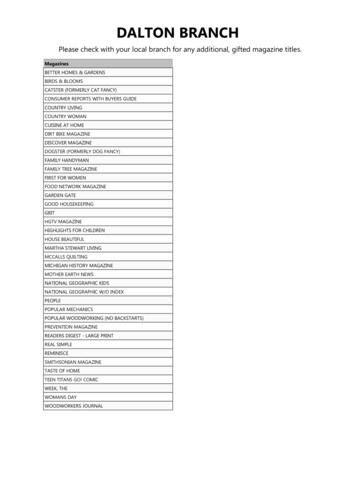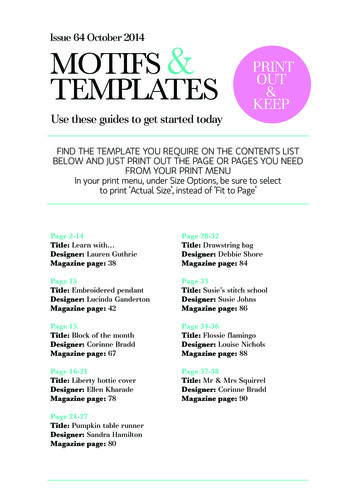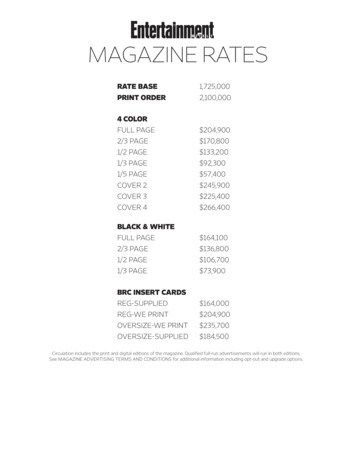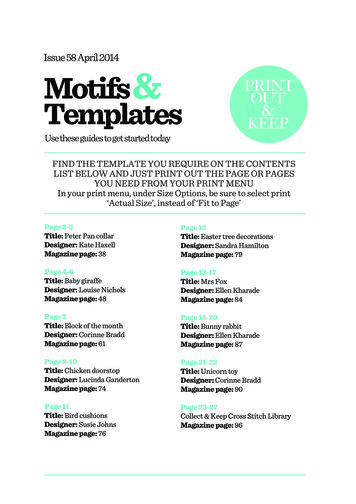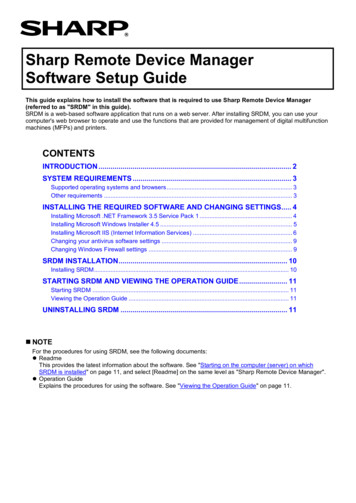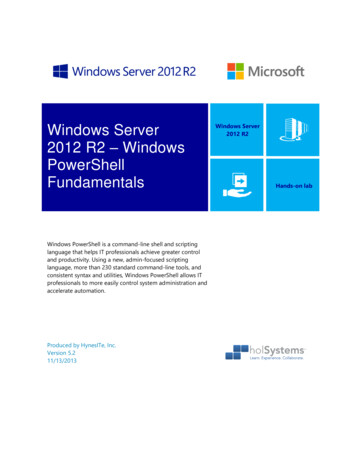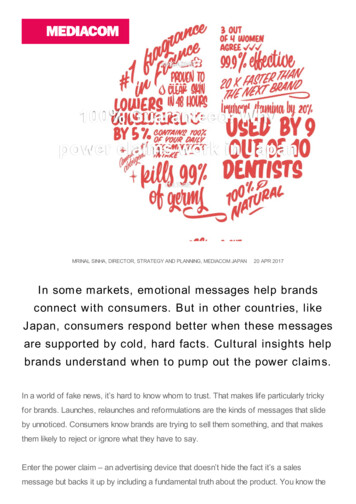
Transcription
MAGAZINE100% Guaranteed: Whypower claims work in JapanCULTUREMRINAL SINHA, DIRECTOR, STRATEGY AND PLANNING, MEDIACOM JAPAN20 APR 2017In some markets, emotional messages help brandsconnect with consumers. But in other countries, likeJapan, consumers respond better when these messagesare supported by cold, hard facts. Cultural insights helpbrands understand when to pump out the power claims.In a world of fake news, it’s hard to know whom to trust. That makes life particularly trickyfor brands. Launches, relaunches and reformulations are the kinds of messages that slideby unnoticed. Consumers know brands are trying to sell them something, and that makesthem likely to reject or ignore what they have to say.Enter the power claim – an advertising device that doesn’t hide the fact it’s a salesmessage but backs it up by including a fundamental truth about the product. You know the
formula: Brand X is the best because it kills 99% of germs.Power claims tend to come in two handy sizes. There’s the science bit, which oftenfeatures people in white lab coats and is beloved of haircare commercials. And there’s thesales bit, which tells you this is the No. 1 product in its sector (millions of your compatriotscan’t be wrong, so you should buy it, right?).The sales bit also has a subclass, the foreign sales success story: “This is the No. 1product in Country A and you should listen because people there always go for quality/knowwhat they are talking about.”The power struggle in JapanOne market where power claims are particularly effective is Japan, a country with a rich anddistinct cultural identity. According to Hofstede’s Cultural Dimensions framework – whichanalyses countries based on a number of cultural parameters – Japan exhibits extremescores on three behavioural measures.Japan scores highly for Uncertainty Avoidance, which means people prefer to stick withwhat they know. The country also has an extreme score for Long-Term Orientation; theJapanese see their lives as a short moment in time. In a marketing sense, this makes themrather pragmatic. They don’t have time to waste with products that don’t work.Japan scores highly for Uncertainty Avoidance, which means people prefer to stick withwhat they know
Underpinning this pragmatism is a strong ‘know-how’ culture. In Japan, people want to knowexactly how and why a product works so they can make an informed judgement call aboutwhether it will help them. Emotional messages don’t provide this kind of information.Finally, Japan over-indexes for Masculinity. In this culture, which is mildly collective,masculinity doesn’t manifest itself in an aggressively competitive or self-serving way, butrather in a quiet pursuit of excellence across the board. In a marketing sense, this meansconsumers always look for the best. Detail matters to them.Power playsTaken together, these scores indicate that in Japan, effective power claims provideconsumers with the reassurance and detail they need to make a purchase. They alsoprovide customers with the confidence to change their previous behaviour.Specificity is key. It’s not enough to simply say that compound X is featured in cleaningproduct Y. Brands have to show that their products make a difference, either by sayingthey’re clinically proven or pulling out statistical evidence.In Japan, effective power claims provide consumers with the reassurance and detail theyneed to make a purchase
In Japan, foreign success stories work when they involve markets people here respect.These are typically countries that share similar cultural qualities. One anomaly is the UnitedStates, which has a very different cultural makeup. Of course, the US influencesconsumerism everywhere, possibly because all consumers tend to become moreindividualistic – a dominant characteristic in US culture – while shopping.Some brands overcome Japan’s high uncertainty avoidance by referencing their overseaspopularity. But these claims still need to backed up by detail. Japanese always needcompelling reasons to buy. One international shampoo brand, for instance, earnedimmediate trust on launch by revealing it was the best-selling brand on a well-known ecommerce site in two influential markets, the US and France. It has since enjoyed massivesuccess.Thinking beyond JapanOther markets likely to respond to power claims include South Korea, France, and Spain, allof which score similarly to Japan for Uncertainty Avoidance. While these countries haveless extreme scores than Japan across other measures, brands can still succeed withoutusing statistical proof points (although it will only help them if they do).While consumers in most markets might not expect as much detail as consumers in Japan,providing too much information is almost always better than providing too little. In short,detail will help brands succeed around the world. And that’s a power claim every advertisershould buy into.
Get insights in your inboxInterested in the future of media and marketing?Get actionable advice, insights and opinion from MediaCom experts every monthSign me upCULTURE
MAGAZINE 100% Guaranteed: Why power claims work in Japan CULTURE MRINAL SINHA, DIRECTOR, STRATEGY AND PLANNING, MEDIACOM JAPAN 20 APR 2017 In some markets, emotional messages help brands connect with consumers. But in other countries, like Japan, consumers respond better when these messages are supported by cold, hard facts. Cultural insights help brands
